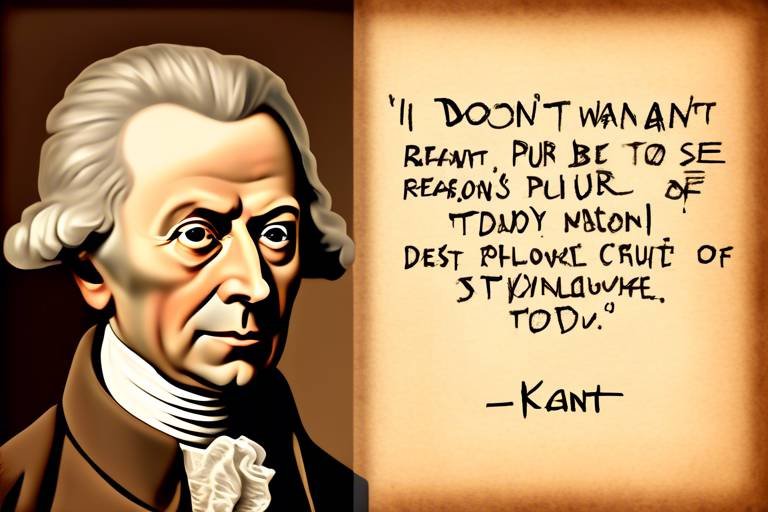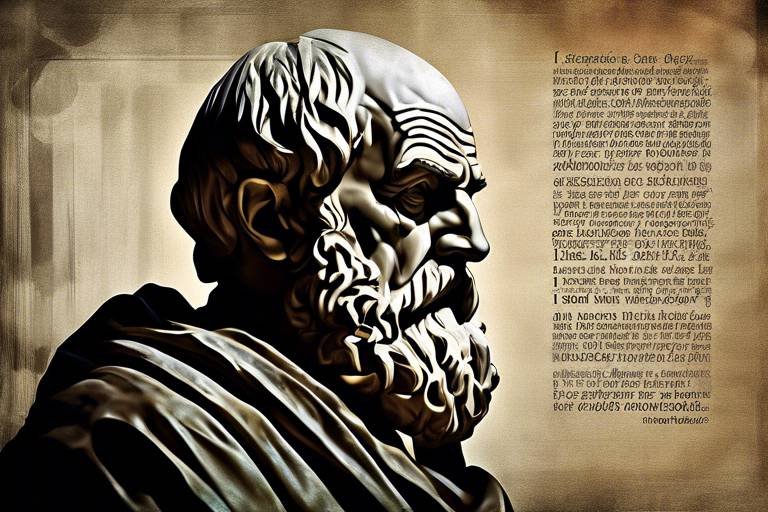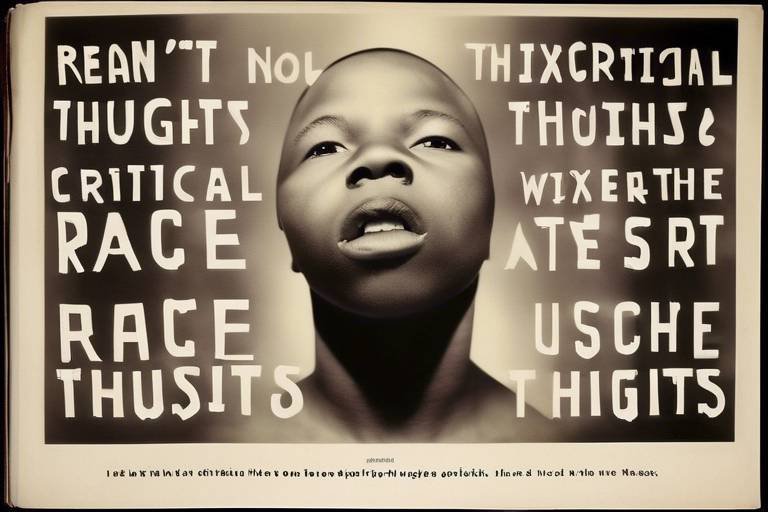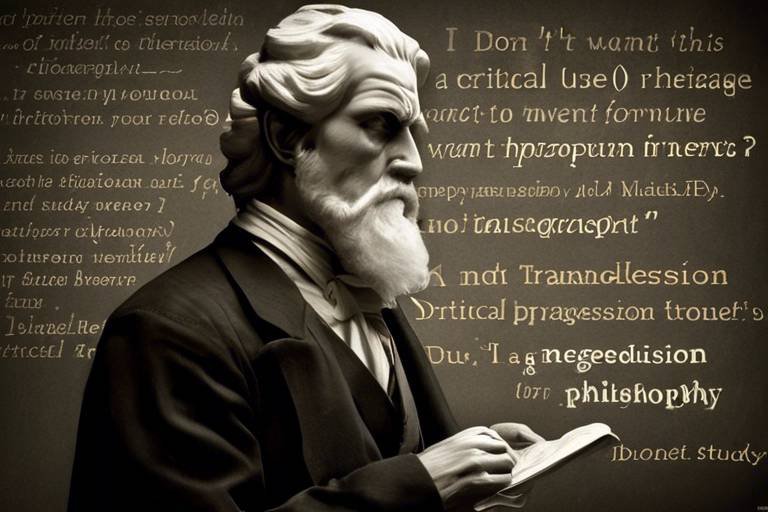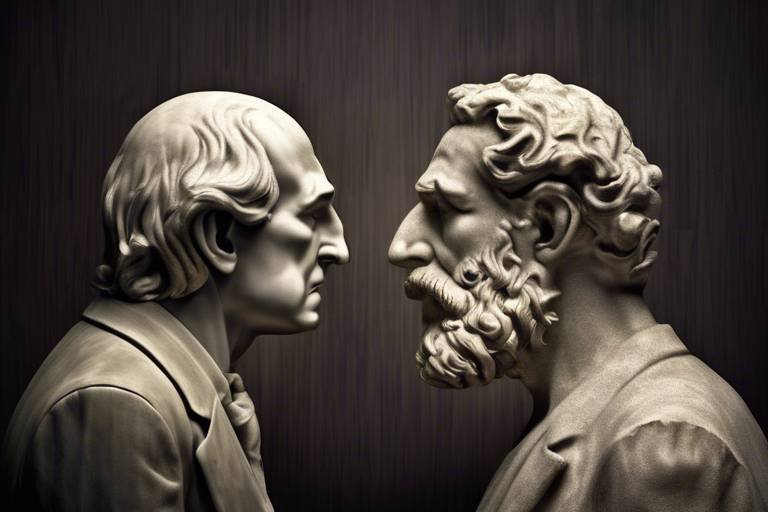Descartes on The Existence of God - A Modern Analysis
René Descartes, a towering figure in the world of philosophy, is often remembered for his attempts to establish a foundation for knowledge that could withstand the onslaught of skepticism. His work, particularly in the realm of metaphysics, led him to grapple with one of the most profound questions of existence: Does God exist? This exploration of God’s existence isn’t just a relic of the past; it’s a vibrant discussion that continues to shape modern philosophy. In this article, we will delve into Descartes' arguments for the existence of God, examining their relevance today and how they continue to influence contemporary thought on metaphysics and epistemology.
To truly appreciate Descartes' arguments, we must first understand the historical context in which he was writing. The 17th century was a time of great intellectual upheaval, characterized by the rise of scientific inquiry and a departure from medieval scholasticism. Think about it: the world was shifting from a reliance on religious dogma to a burgeoning trust in human reason. Descartes found himself at the crossroads of these two worlds. His desire to find certainty amidst the chaos of conflicting ideas drove him to seek a clear and distinct understanding of existence, including that of God. The tension between faith and reason during this period set the stage for Descartes' philosophical inquiries, making his arguments not just relevant but essential to the discourse of his time.
At the heart of Descartes' philosophy lies his famous method of doubt, a rigorous approach that challenges the very foundations of knowledge. Imagine standing on a shaky bridge, unsure if it can support your weight; that’s the essence of Descartes' skepticism. He famously declared, "Cogito, ergo sum" or "I think, therefore I am," as a starting point for his inquiries. This method leads him to conclude that while he can doubt the existence of the physical world, he cannot doubt his own existence as a thinking being. From this point of certainty, Descartes argues that the existence of a perfect God is necessary to explain the idea of perfection that exists in our minds. If we have an idea of a perfect being, it must have originated from a perfect being itself—God. This line of reasoning is pivotal, as it sets the stage for his further arguments regarding God's existence.
The ontological argument is perhaps one of the most intriguing aspects of Descartes' philosophy. He posits that the very concept of God as a perfect being implies His existence. It’s like saying, if we can conceive of the most perfect pizza, then it must exist in some form—otherwise, it wouldn’t be perfect! Descartes argues that existence is a predicate of perfection; thus, if God is perfect, He must exist. This argument has sparked much debate over the years, with critics questioning whether existence can truly be treated as a property. Still, Descartes' ontological argument remains a fascinating exploration of how we understand perfection and existence.
In addition to the ontological argument, Descartes also presents a cosmological argument for God's existence. This argument hinges on the idea that everything that exists must have a cause. Just like a domino effect, one event leads to another; the existence of the universe must have a cause that is outside of itself. Descartes asserts that this cause must be a necessary being—God. He argues that the universe cannot be self-causing, as that would contradict the very nature of existence. This line of reasoning invites readers to ponder the origins of existence itself, pushing them to confront the fundamental questions of why there is something rather than nothing.
Despite the elegance of Descartes' arguments, they have not gone unchallenged. Philosophers such as Kant and Hume raised significant objections. Kant argued that existence is not a predicate and thus cannot be used to define God. Hume, on the other hand, questioned the leap from the existence of the universe to the necessity of a divine creator. These critiques highlight the complexities and nuances of Descartes' arguments, reminding us that philosophy is rarely black and white. Engaging with these criticisms not only enriches our understanding of Descartes but also encourages a deeper exploration of the nature of belief itself.
Fast forward to today, and Descartes' ideas still resonate in philosophical discussions. Modern thinkers grapple with the implications of his arguments in debates about theism and atheism. Many find themselves revisiting his method of doubt as they navigate the complexities of belief in a postmodern world. The questions Descartes raised about existence, perfection, and causality are not just academic exercises; they are relevant to our everyday understanding of the world around us. As we continue to explore these ideas, we are reminded of the timeless nature of philosophical inquiry.
When we place Descartes alongside other philosophers like Kant and Hume, we see a rich tapestry of thought regarding the existence of God. Kant’s critique of the ontological argument and Hume’s skepticism about causality provide contrasting perspectives that challenge Descartes' assertions. This comparative analysis reveals the diversity of thought that has emerged around the question of God’s existence, highlighting the importance of dialogue in philosophy. Each philosopher brings a unique lens through which we can examine our beliefs and the nature of existence.
In conclusion, Descartes' exploration of God's existence has left an indelible mark on the landscape of philosophy. His arguments, while subject to critique, continue to provoke thought and inspire inquiry. The discussions he initiated about the nature of existence and the divine are as relevant today as they were in the 17th century. Descartes challenges us to think critically about our beliefs and the foundations upon which they rest. As we navigate our own philosophical journeys, we carry forward the legacy of Descartes, engaging with the fundamental questions that define our existence.
- What is Descartes' main argument for the existence of God? Descartes argues that the idea of a perfect God must originate from a perfect being, thus affirming God's existence.
- How does Descartes' method of doubt contribute to his arguments? His method of doubt establishes a foundation of certainty, leading him to conclude that a perfect God must exist to explain our concept of perfection.
- What are the main critiques of Descartes' arguments? Critics like Kant and Hume challenge the validity of his ontological argument and the leap from the universe's existence to a divine creator.
- Why are Descartes' ideas still relevant today? His inquiries into existence and belief continue to resonate in modern philosophical debates about theism and atheism.

The Historical Context of Descartes' Philosophy
To truly appreciate René Descartes and his philosophical inquiries, we must first take a step back and immerse ourselves in the historical context of the 17th century. This was a time of significant upheaval and transformation, marked by the Scientific Revolution and the gradual emergence of modern thought. The intellectual climate was buzzing with new discoveries and challenges to traditional beliefs, creating fertile ground for Descartes' revolutionary ideas.
During this period, Europe was witnessing a shift from medieval scholasticism, which relied heavily on religious doctrine and Aristotelian logic, to a more empirical and rational approach to knowledge. Thinkers like Galileo Galilei were challenging long-held views about the cosmos, while others, such as Francis Bacon, were advocating for the scientific method. This environment of questioning and exploration influenced Descartes profoundly, pushing him to seek a foundational truth that could withstand skepticism.
Descartes was not just a philosopher; he was also a mathematician, and his background in mathematics played a crucial role in shaping his philosophical inquiries. The precision and certainty found in mathematics became a model for his quest for knowledge. He famously declared, "Cogito, ergo sum" (I think, therefore I am), establishing the act of thinking as the first indubitable truth. This method of doubt, which he employed to strip away uncertainties, was revolutionary and laid the groundwork for modern philosophy.
In a world where religion and science often clashed, Descartes sought to reconcile these two spheres. He believed that reason and faith could coexist, and his arguments for the existence of God were not merely theological but also philosophical. He aimed to provide a rational basis for belief in God that could appeal to the intellect, rather than relying solely on faith. This was a bold move, considering the religious tensions of his time, particularly the Protestant Reformation and the Catholic Counter-Reformation.
To further understand Descartes' motivations, we can look at some of the key events and ideas that shaped his philosophical landscape:
| Key Events | Influence on Descartes |
|---|---|
| The Scientific Revolution | Encouraged a shift towards empirical evidence and rational thought. |
| The Protestant Reformation | Challenged the authority of the Church and emphasized individual interpretation of faith. |
| The Rise of Humanism | Promoted the value of human reason and inquiry, laying the groundwork for modern philosophy. |
In summary, the historical context of Descartes' philosophy is crucial for understanding his arguments for the existence of God. The intersection of science, religion, and humanism created a unique environment that fostered his innovative ideas. As we delve deeper into Descartes' methodology and arguments, it's essential to keep this backdrop in mind, as it not only influenced Descartes but also set the stage for subsequent philosophical discussions that continue to resonate today.
As we move forward, we will explore Descartes' method of doubt and how it lays the groundwork for his assertions about God's existence, revealing the intricate connections between skepticism and belief.
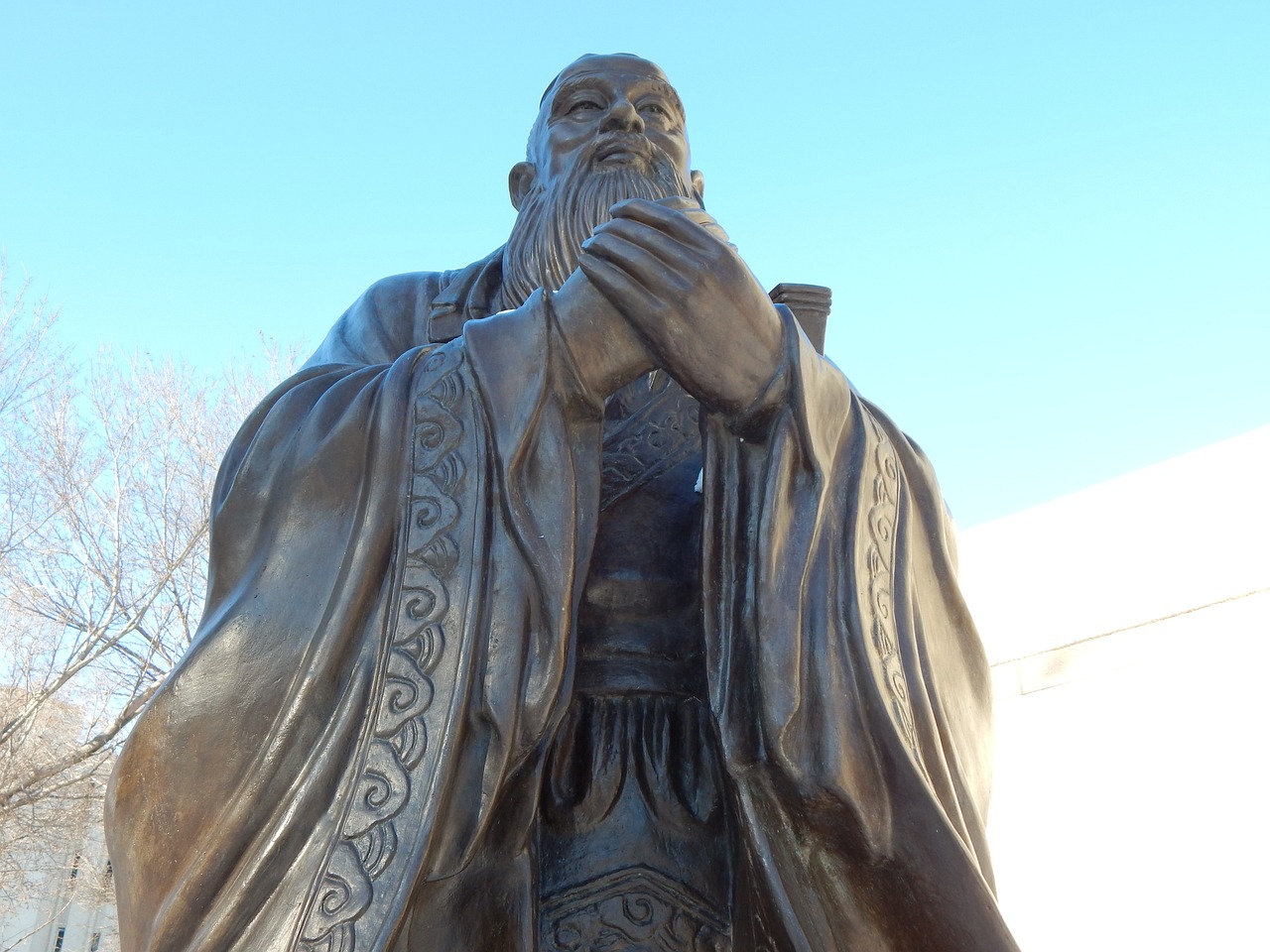
Descartes' Method of Doubt
René Descartes, often hailed as the father of modern philosophy, introduced a revolutionary approach known as the Method of Doubt. This method is a systematic process of questioning the validity of everything he believed to be true. Imagine standing on a shaky bridge; to cross it safely, you must first ensure it can hold your weight. Similarly, Descartes sought to strip away all beliefs that could be doubted, leaving behind only those that were absolutely certain. This radical skepticism paved the way for his famous conclusion: "Cogito, ergo sum" or "I think, therefore I am." In essence, he believed that the very act of doubting one's existence served as proof of the reality of one's own mind.
Descartes' skepticism was not merely an exercise in nihilism; rather, it was a methodical approach aimed at establishing a firm foundation for knowledge. By doubting everything from the existence of the external world to the reliability of sensory perceptions, he aimed to identify beliefs that could withstand the test of doubt. He famously categorized his doubts into three main areas:
- Perceptual Doubt: Questioning the reliability of the senses, as they can be deceiving.
- Mathematical Doubt: Even mathematical truths can be called into question under the influence of a powerful deceiver.
- Existential Doubt: The possibility that everything we perceive might be an illusion.
Through this rigorous process, Descartes arrived at the realization that while he could doubt the existence of everything around him, the one thing he could not doubt was his own existence as a thinking being. This foundational insight led him to assert that God must exist as a perfect being, which he argued was necessary to ensure the existence of truth and reality. In Descartes' view, a benevolent God would not deceive us about the existence of the external world, thus providing a bridge from doubt to certainty.
This method of doubt, while seemingly counterintuitive, serves as a powerful tool in philosophical inquiry. It encourages individuals to critically examine their beliefs and assumptions, fostering a deeper understanding of the world. In today's context, we might relate this to the way we approach information in the digital age. With the overwhelming amount of data available online, adopting a skeptical mindset can help us discern truth from misinformation.
In conclusion, Descartes' Method of Doubt is not merely a relic of philosophical history; it remains a relevant and vital approach to understanding knowledge and existence. By questioning everything and seeking certainty, Descartes not only laid the groundwork for modern philosophy but also provided a framework that continues to inspire critical thinking and inquiry.

The Ontological Argument
The ontological argument is one of the most intriguing and debated aspects of René Descartes' philosophy. At its core, this argument seeks to establish the existence of God through the very definition of God as a supremely perfect being. Descartes presents this argument in a rather elegant manner, asserting that if we can conceive of a perfect being, it must exist. This assertion is grounded in the idea that existence is a requisite attribute of perfection. Think about it: if a being is defined as the greatest conceivable being, then it must possess all perfections, including existence. To suggest otherwise would be to imply that we can conceive of a being greater than the one we have defined, which is logically contradictory.
To break this down further, Descartes posits that the idea of God is inherently linked to the notion of perfection. He argues that:
- If we can conceive of a perfect being, then that being must exist in some form.
- Non-existence would be an imperfection.
- Therefore, the existence of God is not just possible but necessary.
This leads us to a fascinating conclusion: the very act of understanding what God is—an all-perfect being—implies that such a being must exist. Descartes' approach here is not merely philosophical; it’s almost mathematical in its precision. He builds a logical framework where the existence of God is as self-evident as mathematical truths. It's like saying that in a perfect world, a perfect being must reside; otherwise, the concept of perfection itself collapses.
However, it's important to note that Descartes' ontological argument has faced significant scrutiny. Critics like Immanuel Kant have argued that existence is not a predicate or a quality that adds to the concept of a being. Kant famously stated that saying something exists does not add to its essence; it merely posits it in reality. This critique raises a profound question: Does the mere conceptualization of perfection guarantee its existence? The debate continues, with some philosophers defending Descartes’ view while others align with Kant’s skepticism.
In the realm of modern philosophy, the ontological argument still sparks discussion and analysis. It invites us to explore the very nature of existence and how we define the divine. As we navigate through these philosophical waters, we find ourselves not only questioning the existence of God but also reflecting on the implications of our definitions and beliefs. The ontological argument, with all its complexity, remains a cornerstone of theological and philosophical inquiry, challenging us to think deeply about the nature of existence itself.
- What is the ontological argument? The ontological argument is a philosophical argument that asserts that the very concept of a perfect being implies its existence.
- Who proposed the ontological argument? René Descartes is one of the most notable philosophers to articulate the ontological argument, although it has roots in earlier philosophical thought.
- What are the main critiques of the ontological argument? Critics, such as Immanuel Kant, argue that existence is not a property or predicate that can be attributed to a being, questioning the validity of the argument.
- Is the ontological argument still relevant today? Yes, the ontological argument continues to be a topic of discussion in contemporary philosophy, influencing debates on theism and atheism.

The Cosmological Argument
The cosmological argument stands as one of the most compelling pillars in René Descartes' defense of God's existence. At its core, this argument seeks to establish that everything that exists has a cause, and if we trace these causes back, we must eventually arrive at a first cause, which Descartes identifies as God. This line of reasoning is not just a philosophical exercise; it has profound implications for our understanding of the universe and our place within it.
To grasp Descartes' cosmological argument, it's essential to understand the nature of causation. Descartes posits that the universe is filled with finite beings—entities that exist but do not possess the necessity of existence. These beings require a cause outside themselves to bring them into existence. This leads to a pivotal question: if every effect has a cause, what is the ultimate cause of everything? Descartes argues that this ultimate cause must be a necessary being, one that exists independently and is not contingent upon anything else. In other words, God is the ultimate source of existence itself.
Descartes' approach can be broken down into several key components:
- Contingency: Everything in the universe is contingent; it relies on something else for its existence.
- Necessity: There must be something that exists out of necessity to account for the existence of contingent beings.
- First Cause: This necessary being, which we identify as God, is the first cause that initiated everything else.
One might wonder, why is the concept of a necessary being so crucial? The answer lies in the nature of existence itself. If everything were contingent without a necessary being, we would face an infinite regress of causes, which is philosophically unsatisfactory. Imagine a line of dominoes falling; if each domino depends on the one before it, there must be an initial push to set the first domino in motion. Similarly, Descartes argues that there must be an initial cause that is uncaused itself, and that is God.
Moreover, Descartes emphasizes the importance of clarity and distinctness in understanding this argument. He believed that if we can clearly and distinctly perceive the idea of a necessary being, then it must exist. This notion intertwines with his famous dictum, "I think, therefore I am," as it reinforces the idea that our thoughts about existence point to a deeper reality that must be grounded in something beyond mere perception.
In contemporary discussions, the cosmological argument still sparks debates among philosophers and theologians alike. Critics often challenge the assumption that everything must have a cause, proposing alternative explanations such as quantum mechanics, where events can occur without a discernible cause. Nevertheless, Descartes' cosmological argument remains a significant touchstone in the discourse surrounding the existence of God, compelling us to ponder the origins of existence itself.
In summary, the cosmological argument presents a structured and logical case for the existence of God as the necessary being behind all contingent existence. While it faces critiques and alternative theories, its foundational role in philosophy cannot be overstated. It invites each of us to reflect on the nature of existence and the ultimate source from which all things arise.

Critiques of Descartes' Arguments
René Descartes' arguments for the existence of God have sparked extensive debate among philosophers, both in his time and in contemporary discussions. While many have praised his innovative approach, others have raised significant critiques that challenge the validity of his claims. One of the primary criticisms focuses on the ontological argument, which asserts that the very concept of a perfect being necessitates God's existence. Critics like Immanuel Kant argued that existence is not a predicate; that is, simply defining God as perfect does not automatically imply that such a being exists in reality. This critique raises an essential question: can we truly derive existence from a definition?
Another notable critique comes from the realm of empiricism, particularly from philosophers like David Hume. Hume contended that our knowledge is grounded in sensory experience, and thus, arguments that rely on abstract reasoning or innate ideas, such as Descartes' cosmological argument, fall short. Hume argued that just because we can conceive of a necessary being does not mean that such a being exists in the empirical world. This challenge emphasizes the divide between rationalism and empiricism, forcing us to reconsider the foundations of our beliefs.
Furthermore, some critics have pointed out the potential for circular reasoning in Descartes' work. His reliance on clear and distinct perceptions as a basis for knowledge leads to the question of whether these perceptions can be trusted without first establishing the existence of God. This circularity, as highlighted by philosophers like Bertrand Russell, raises doubts about the coherence of Descartes' arguments. If one must already assume the existence of God to validate their perceptions, then the argument seems to collapse under its own weight.
Additionally, the implications of Descartes' arguments raise concerns regarding the nature of belief and faith. Some argue that his rational approach to proving God's existence undermines the idea of faith as a personal and subjective experience. If belief in God can be rationalized through philosophical arguments, does it diminish the spiritual aspect of faith? This question invites a broader discussion about the relationship between reason and belief, prompting us to consider whether faith can exist independently of rational justification.
In summary, while Descartes' arguments for the existence of God have undeniably shaped philosophical discourse, they are not without their flaws. The critiques surrounding his ontological and cosmological arguments highlight essential tensions between rationalism and empiricism, as well as questions about the nature of existence and belief. These discussions continue to resonate today, as modern philosophers grapple with the legacy of Descartes and the implications of his ideas on contemporary thought.
- What is Descartes' ontological argument? Descartes' ontological argument posits that the very definition of God as a perfect being implies His existence, as existence is a necessary attribute of perfection.
- Who critiqued Descartes' arguments? Notable critics include Immanuel Kant, who argued that existence is not a predicate, and David Hume, who emphasized the importance of empirical evidence over abstract reasoning.
- What is the significance of the critiques? The critiques highlight fundamental philosophical debates regarding the nature of existence, the validity of rational arguments for God’s existence, and the relationship between faith and reason.

Modern Relevance of Descartes' Ideas
René Descartes' philosophical inquiries, especially his arguments for the existence of God, have not only stood the test of time but have also sparked renewed interest in contemporary discussions about metaphysics and epistemology. In an era where science and rationality dominate, Descartes' ideas serve as a bridge between faith and reason, reminding us that the quest for knowledge often leads us to profound existential questions. Have you ever pondered the nature of existence or the essence of reality? If so, you're not alone, and Descartes is right there with you, guiding the way.
Modern philosophers and theologians often revisit Descartes' works, particularly his method of doubt and the ontological argument, to explore their implications in today's context. For instance, in a world increasingly influenced by scientific advancements, Descartes’ insistence on the necessity of a divine being challenges the often materialistic worldview that predominates. His arguments compel us to reconsider the relationship between existence and essence, a topic that resonates deeply in today's philosophical debates.
Furthermore, Descartes' emphasis on reason as a tool for understanding the divine has been echoed in various modern philosophical discourses. Thinkers like Alfred North Whitehead and William James have drawn from Cartesian principles to articulate their own views on the interplay between faith and rationality. This connection illustrates how Descartes' ideas continue to influence contemporary thought, encouraging a dialogue that embraces both skepticism and belief.
In the realm of epistemology, Descartes' foundational role in establishing a systematic approach to knowledge acquisition is evident. His famous dictum, "Cogito, ergo sum" (I think, therefore I am), serves as a cornerstone for modern philosophy, prompting ongoing discussions about consciousness, identity, and the nature of reality. Today, as we delve deeper into topics like artificial intelligence and consciousness, Descartes' insights provide a valuable framework for understanding what it means to be human in an increasingly complex world.
Moreover, the relevance of Descartes' ideas extends beyond philosophy into practical applications in fields such as cognitive science and psychology. Researchers exploring the nature of thought and perception often reference Cartesian dualism, which posits a distinction between the mind and body. This dualistic perspective continues to influence contemporary debates about the nature of consciousness and the relationship between mental states and physical processes. Are we merely biological machines, or is there something more profound at play? Descartes invites us to explore these questions with a critical eye.
In summary, the modern relevance of Descartes' ideas is undeniable. His work invites us to engage in a dialogue that balances skepticism with faith, reason with belief. As we navigate the complexities of existence in the 21st century, Descartes' philosophical legacy remains a vital resource for those seeking to understand the deeper questions of life. So, the next time you find yourself grappling with the mysteries of existence, remember that Descartes is not just a figure of the past; he is a guiding light in our ongoing quest for understanding.
- What is the significance of Descartes' method of doubt?
Descartes' method of doubt is significant because it lays the groundwork for critical thinking and skepticism, encouraging individuals to question their beliefs and seek certainty in knowledge. - How does Descartes' philosophy influence modern science?
Descartes' emphasis on reason and systematic inquiry has influenced the scientific method, promoting a rational approach to understanding the natural world. - What are the main critiques of Descartes' arguments for God's existence?
Critiques often center around the validity of his ontological and cosmological arguments, questioning whether they sufficiently prove the existence of a divine being.
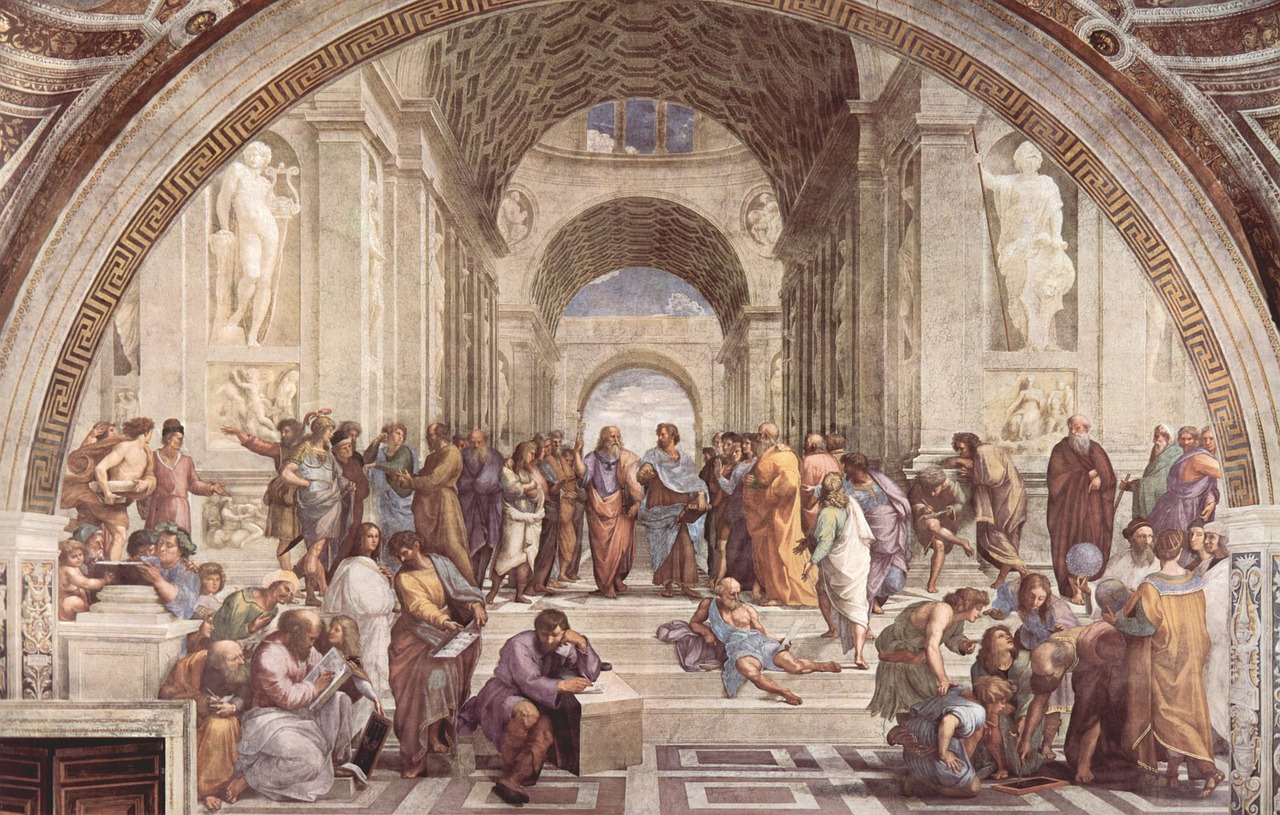
Comparative Analysis with Other Philosophers
When diving into the philosophical waters surrounding the existence of God, René Descartes stands as a towering figure, but he is not alone in this vast ocean of thought. His arguments, particularly the ontological and cosmological arguments, invite comparison with other prominent philosophers like Immanuel Kant and David Hume. Each of these thinkers approached the question of God's existence from unique angles, offering insights that both complement and challenge Descartes' assertions.
For instance, Descartes' ontological argument posits that the very concept of a perfect being necessitates its existence. In his view, to conceive of God is to acknowledge that He must exist; otherwise, He wouldn't be the most perfect being. Kant, however, would later critique this notion, arguing that existence is not a predicate. In his seminal work, Critique of Pure Reason, Kant suggests that one cannot simply define God into existence. This philosophical tug-of-war raises questions about the nature of existence itself and whether it can be treated as a quality akin to perfection.
On the other hand, Hume's skepticism presents a more empirical challenge to Descartes' claims. Hume, in his Dialogues Concerning Natural Religion, argues that human understanding is limited and that we cannot infer the existence of a deity based solely on the universe's existence. He emphasizes that just because we observe order and complexity in the world does not mean we can definitively conclude a divine creator is responsible. This perspective invites us to consider the implications of our observations and the limitations of human reasoning when it comes to metaphysical claims.
The following table summarizes key differences between Descartes, Kant, and Hume regarding their views on the existence of God:
| Philosopher | Argument Type | Key Idea |
|---|---|---|
| René Descartes | Ontological & Cosmological | Existence of God is necessary based on the concept of perfection. |
| Immanuel Kant | Critique of Ontological | Existence is not a predicate; one cannot define God into existence. |
| David Hume | Empirical Skepticism | Human reasoning is limited; we cannot infer God's existence from the universe. |
By examining these differing perspectives, we can appreciate the rich tapestry of philosophical discourse surrounding the existence of God. Each philosopher contributes to a deeper understanding of the complexities involved in such profound questions. While Descartes lays a foundational framework for theistic belief, Kant and Hume challenge and refine our understanding, pushing us to critically evaluate our assumptions about existence, perfection, and the divine.
In essence, the conversation about God's existence is not just a one-sided affair. It’s a dynamic interplay of ideas that continues to evolve. As we engage with these philosophical giants, we are reminded that the search for truth is often more about the questions we ask than the answers we find.
- What is Descartes' main argument for the existence of God? Descartes primarily argues for God's existence through the ontological argument, which posits that the very concept of a perfect being necessitates its existence.
- How does Kant critique Descartes' argument? Kant argues that existence is not a predicate, meaning one cannot define God into existence simply by stating that a perfect being must exist.
- What role does Hume play in this discussion? Hume introduces skepticism, suggesting that human reasoning is limited and we cannot definitively infer God's existence from our observations of the universe.
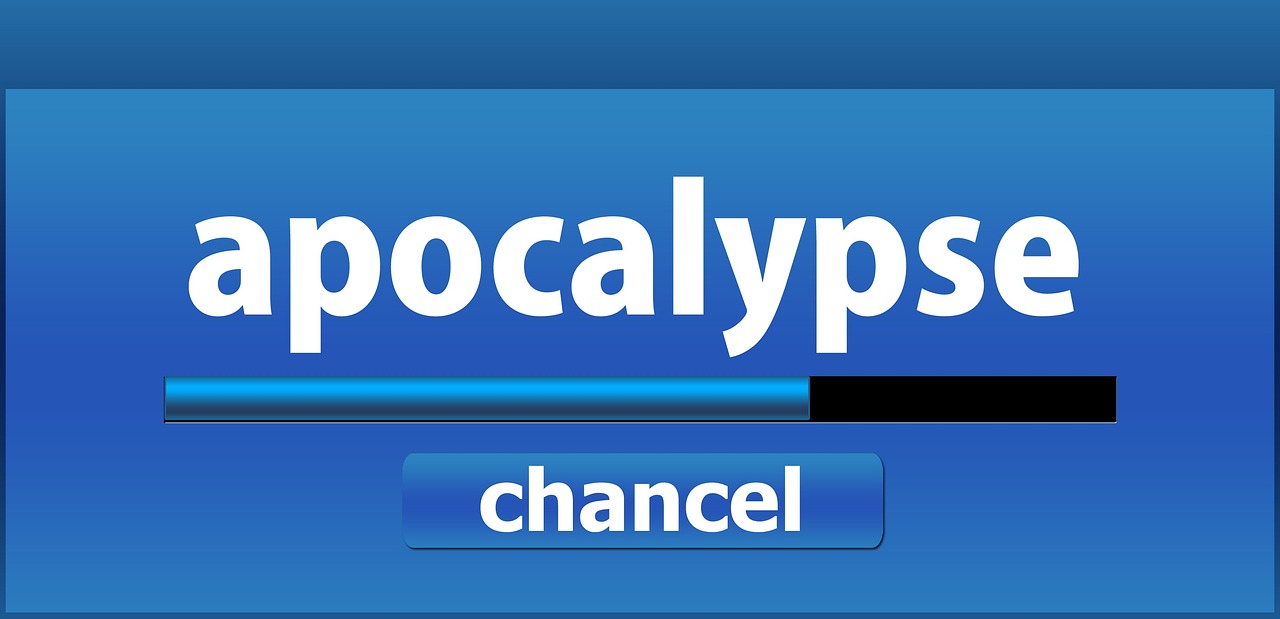
Conclusion: The Legacy of Descartes
In wrapping up our exploration of René Descartes and his profound impact on philosophy, it's essential to recognize the enduring legacy he has left behind. Descartes not only challenged the intellectual norms of his time but also laid the groundwork for future philosophical inquiry. His famous dictum, "Cogito, ergo sum" (I think, therefore I am), encapsulates the essence of human consciousness and self-awareness, prompting countless thinkers to delve deeper into the nature of existence.
Descartes' arguments for the existence of God, particularly through the ontological and cosmological perspectives, continue to spark debate and discussion among philosophers today. His work serves as a bridge between medieval scholasticism and modern philosophy, influencing figures such as Kant and Hume, who both approached the question of God from different angles. The way Descartes intertwined metaphysics with epistemology has opened up avenues for contemporary discussions on the nature of belief, knowledge, and existence.
Moreover, Descartes' method of doubt encourages a critical examination of beliefs, urging individuals to question the very foundations of their understanding. This methodological skepticism is not just a relic of the past; it is a vital tool in our quest for truth in a world overflowing with information and competing narratives. As we navigate the complexities of modern life, Descartes' emphasis on rational inquiry and clarity of thought remains incredibly relevant.
In summary, the legacy of Descartes is multifaceted, impacting various domains of thought, including philosophy, science, and theology. His contributions have set the stage for ongoing debates about the existence of God and the nature of reality. As we reflect on his work, we are reminded that the quest for understanding is a timeless endeavor, one that transcends the boundaries of history and continues to resonate with each new generation of thinkers.
- What is Descartes' most famous philosophical statement?
Descartes is best known for the phrase "Cogito, ergo sum," which translates to "I think, therefore I am." - What are the main arguments Descartes presents for the existence of God?
Descartes primarily uses the ontological and cosmological arguments to assert that God must exist as a perfect being. - How has Descartes influenced modern philosophy?
His method of doubt and emphasis on rationalism have significantly shaped contemporary epistemology and metaphysics. - What critiques exist regarding Descartes' arguments for God?
Critics point out potential weaknesses in his ontological argument and question the validity of proving God's existence through reason alone.
Frequently Asked Questions
- What is Descartes' main argument for the existence of God?
Descartes primarily uses the ontological argument, which posits that the very concept of a perfect being implies its existence. He argues that because we can conceive of a perfect God, that God must exist in reality, as existence is a necessary attribute of perfection.
- How does Descartes' method of doubt relate to his belief in God?
Descartes' method of doubt involves questioning all beliefs to establish what can be known for certain. Through this process, he concludes that the existence of a benevolent God is necessary to guarantee the truth of clear and distinct perceptions, thus affirming God's existence as foundational to his philosophy.
- What is the cosmological argument presented by Descartes?
The cosmological argument suggests that everything that exists has a cause, and since the universe exists, it must have a cause outside of itself, which Descartes identifies as a necessary being, or God. This argument connects the existence of the universe directly to the existence of God.
- What are some common critiques of Descartes' arguments?
Critics argue that Descartes' arguments rely heavily on subjective reasoning and may not convincingly demonstrate God's existence to skeptics. Philosophers like Kant and Hume present challenges to his ideas, suggesting that existence is not a predicate and questioning the necessity of a perfect being.
- How do modern philosophers view Descartes' arguments for God?
Modern philosophers engage with Descartes' ideas in various ways, often using them as a springboard for debates on theism and atheism. His arguments continue to be relevant, as they raise essential questions about existence, perfection, and the nature of belief in God.
- What is the legacy of Descartes in philosophy?
Descartes' legacy is profound; he is often referred to as the father of modern philosophy. His inquiries into the existence of God and the nature of knowledge have shaped philosophical discourse for centuries, influencing both contemporary thought and the methodologies of future philosophers.



